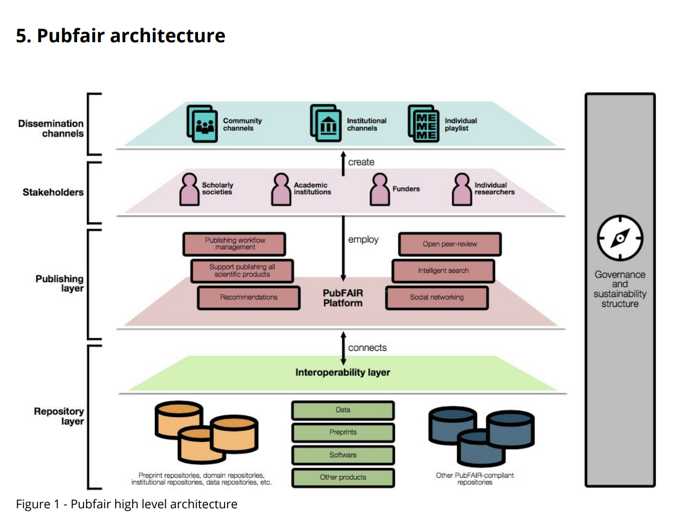New White Paper From COAR: “Pubfair – A Framework for Sustainable, Distributed, Open Science Publishing Services”
From COAR (Confederation of Open Access Repositories):
This white paper provides the rationale and describes the high level architecture for an innovative publishing framework that positions publishing functionalities on top of the content managed by a distributed network of repositories. The framework is inspired by the vision and use cases outlined in the COAR Next Generation Repositories work, first published in November 2017 and further articulated in a funding proposal developed by a number of European partners.
By publishing this on Comments Press, we are seeking community feedback about the Pubfair framework in order to refine the functionalities and architecture, as well as to gauge community interest.
Abstract
Over the last thirty years, digitally-networked technologies have disrupted traditional media, turning business models on their head and changing the conditions for the creation, packaging and distribution of content. Yet, scholarly communication still looks remarkably as it did in the pre-digital age. The primary unit of dissemination remains the research article (or book in some disciplines), and today’s articles still bear a remarkable resemblance to those that populated the pages of Oldenburg’s Philosophical Transactions 350 years ago. In an age of such disruptive innovation, it is striking how little digital technologies have impacted scholarly publishing; and this is also somewhat ironic, since the Web was developed by scientists for research purposes.
Pubfair is a modular open source publishing framework which builds upon a distributed network of repositories to enable the dissemination and quality-control of a range of research outputs including publications, data, and more. Pubfair introduces significant innovation into scholarly publishing. It enables different stakeholders (funders, institutions, scholarly societies, individuals scientists) to access a suite of functionalities to create their own dissemination channels, with built in open review and transparent processes. The model minimizes publishing costs while maintaining academic standards by connecting communities with iterative publishing services linked to their preferred repository. Such a publishing environment has the capacity to transform the scholarly communication system, making it more research-centric, dissemination-oriented and open to and supportive of innovation, while also collectively managed by the scholarly community.
Authors
Tony Ross-Hellauer
Benedikt Fecher
Kathleen Shearer
Eloy Rodrigues
Direct to Full Text (HTML Version)
Direct to Full Text (PDF Version)
13 pages.
Filed under: Data Files, Funding, Journal Articles, News, Open Access, Publishing
About Gary Price
Gary Price (gprice@gmail.com) is a librarian, writer, consultant, and frequent conference speaker based in the Washington D.C. metro area. He earned his MLIS degree from Wayne State University in Detroit. Price has won several awards including the SLA Innovations in Technology Award and Alumnus of the Year from the Wayne St. University Library and Information Science Program. From 2006-2009 he was Director of Online Information Services at Ask.com.



